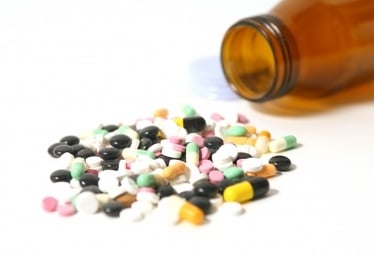 Many parents struggle to help their child/children who have been diagnosed with ADHD. While most children are not tested for ADHD until problems begin arising in the classroom, children as young as four can be diagnosed according to the American Academy of Pediatrics. While doctors often prescribe stimulants, such as amphetamine, to children with ADHD, prescribing these medications for young children can be worrisome due to the side effects, both short term and potentially long term.
Many parents struggle to help their child/children who have been diagnosed with ADHD. While most children are not tested for ADHD until problems begin arising in the classroom, children as young as four can be diagnosed according to the American Academy of Pediatrics. While doctors often prescribe stimulants, such as amphetamine, to children with ADHD, prescribing these medications for young children can be worrisome due to the side effects, both short term and potentially long term.
Side effects that affect a child using stimulants include sleep problems, poor mood, irritability, decreased appetite, increased blood pressure, increased heart rate, stomachaches, headaches, delayed growth, and feeling unwell during the rebound period when the medication is wearing off. Often, the side effects outweigh the benefits of the medication, because children are inhibited from performing well in school due to the side effects.
Studies have also shown that ADHD drugs may have long term effects on mental health. Stimulants are linked to aggressive behavior, psychosis, paranoia, and severe mood swings if taken long term. If a child has a family history of mental illness, stimulants can provoke major issues down the line.
Many parents simply do not feel comfortable putting their child on a medication that could potentially cause problems in the long-term. It is important to recognize that stimulants are only a temporary solution to a bigger issue within the brain. Stimulants may help in the moment, but ultimately if the problem is not by improving brain function, there will be no permanent change.
 Neurofeedback is a natural treatment to improve brain function that is safe for all ages with no unwanted side effects. A quantitative EEG brain map identifies discordant brain waves, then protocol is developed that is personalized to each patient’s needs, targeting what correction is necessary. Neurofeedback can also be used in conjunction with the child’s existing medication if the child is seeing benefits from it presently. The goal is to make long-lasting changes to the brain so the need for medications can be reduced or eliminated.
Neurofeedback is a natural treatment to improve brain function that is safe for all ages with no unwanted side effects. A quantitative EEG brain map identifies discordant brain waves, then protocol is developed that is personalized to each patient’s needs, targeting what correction is necessary. Neurofeedback can also be used in conjunction with the child’s existing medication if the child is seeing benefits from it presently. The goal is to make long-lasting changes to the brain so the need for medications can be reduced or eliminated.
Our director Dr. Jolene Ross has many years of experience working with children to improve symptoms of ADHD as well as other brain based issues such as learning disabilities, developmental disabilities, behavioral problems, and more! Dr. Ross has seen many children significantly reduce or end their dependency on medication and go on to live successful lives, both academically and personally.
First image courtesy of scottchan at FreeDigitalPhotos.net
Second image courtesy of photostock at FreeDigitalPhotos.net





